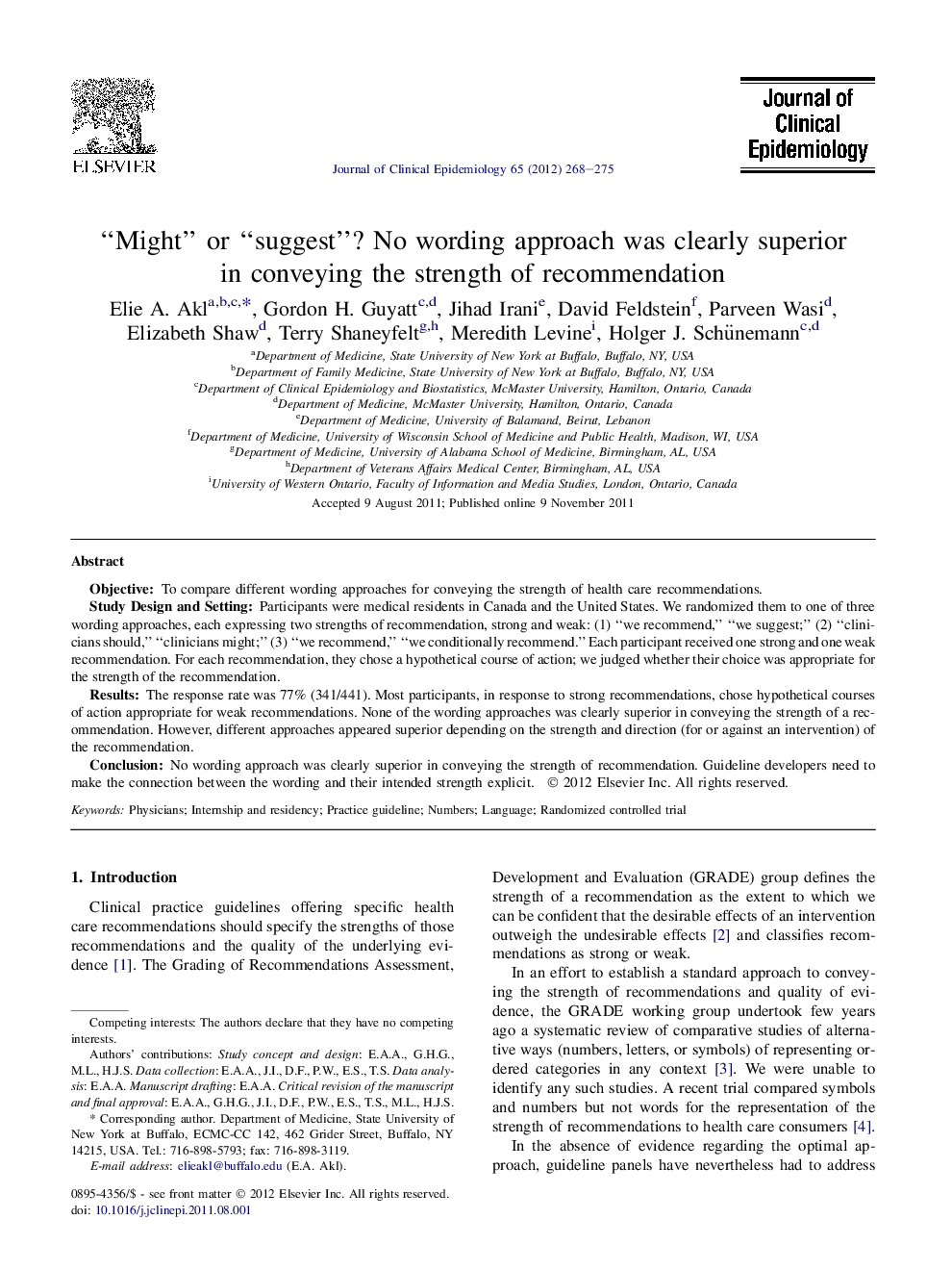| کد مقاله | کد نشریه | سال انتشار | مقاله انگلیسی | نسخه تمام متن |
|---|---|---|---|---|
| 1082669 | 950960 | 2012 | 8 صفحه PDF | دانلود رایگان |

ObjectiveTo compare different wording approaches for conveying the strength of health care recommendations.Study Design and SettingParticipants were medical residents in Canada and the United States. We randomized them to one of three wording approaches, each expressing two strengths of recommendation, strong and weak: (1) “we recommend,” “we suggest;” (2) “clinicians should,” “clinicians might;” (3) “we recommend,” “we conditionally recommend.” Each participant received one strong and one weak recommendation. For each recommendation, they chose a hypothetical course of action; we judged whether their choice was appropriate for the strength of the recommendation.ResultsThe response rate was 77% (341/441). Most participants, in response to strong recommendations, chose hypothetical courses of action appropriate for weak recommendations. None of the wording approaches was clearly superior in conveying the strength of a recommendation. However, different approaches appeared superior depending on the strength and direction (for or against an intervention) of the recommendation.ConclusionNo wording approach was clearly superior in conveying the strength of recommendation. Guideline developers need to make the connection between the wording and their intended strength explicit.
Journal: Journal of Clinical Epidemiology - Volume 65, Issue 3, March 2012, Pages 268–275